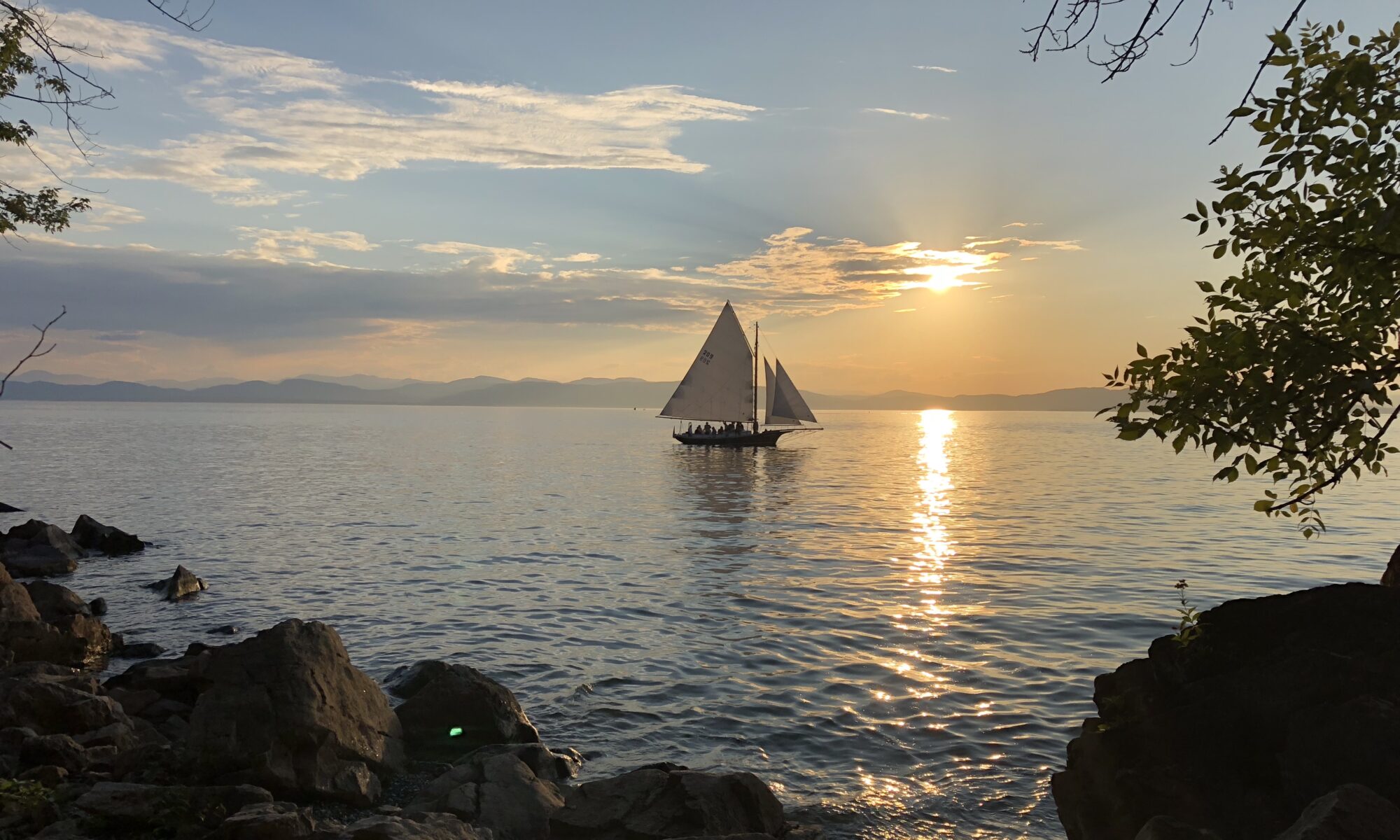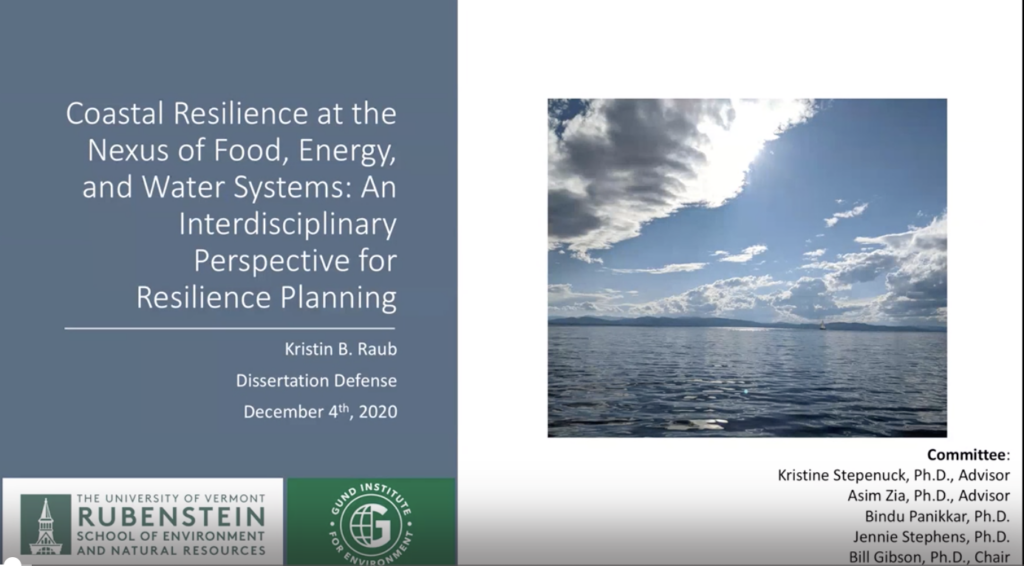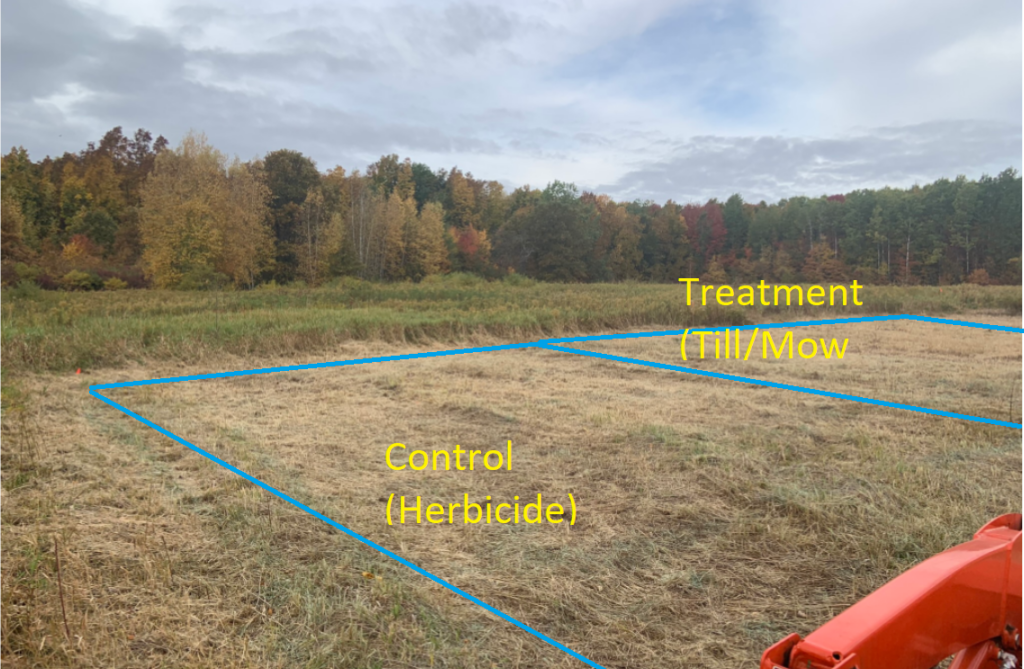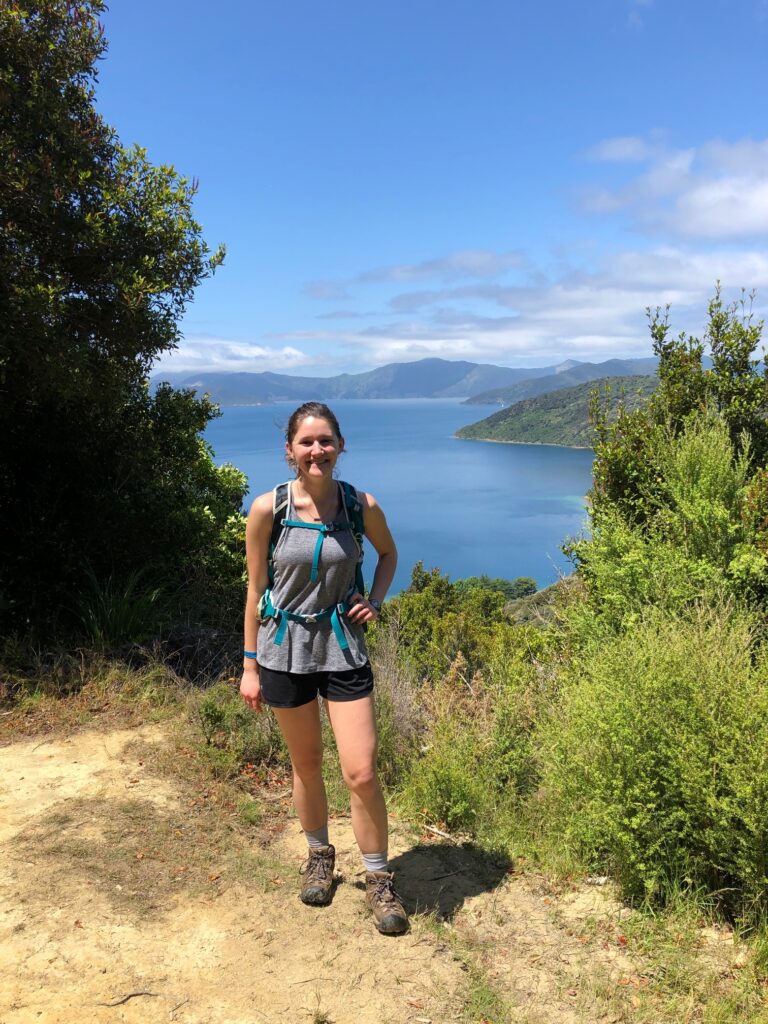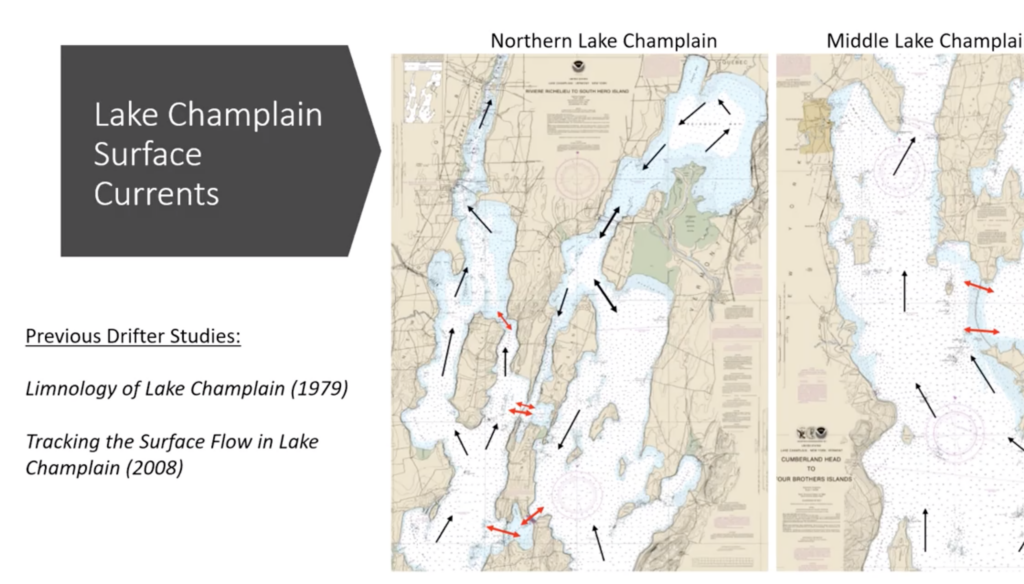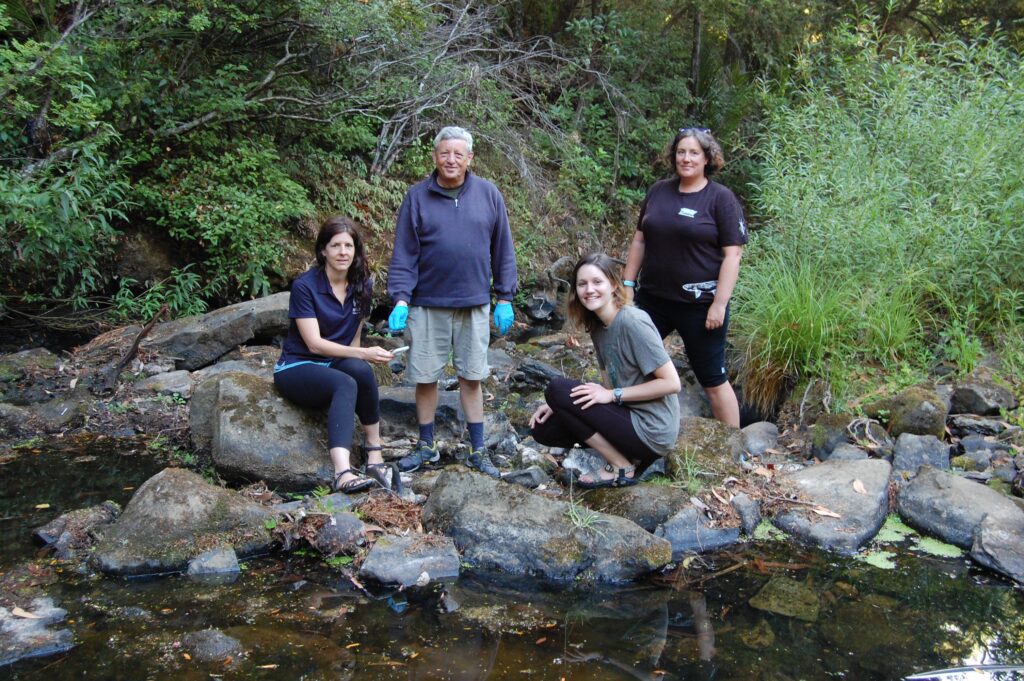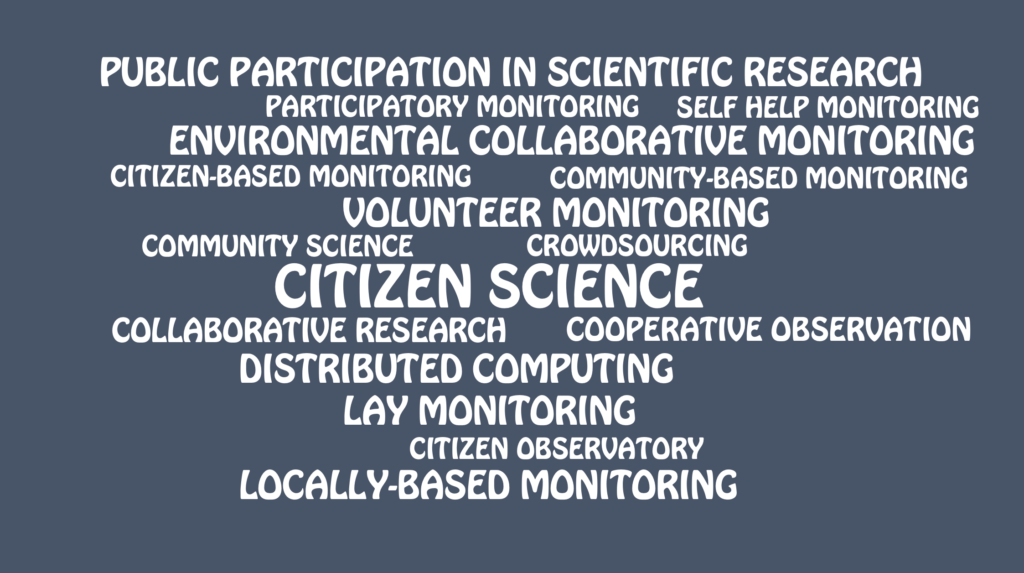The WESP Lab group has been busy since the last post. Kate Longfield defended her MS thesis in fall 2023 and Marisa Immordino defended her thesis in fall 2024. Kate’s research was carried out in support of the Watershed Forestry Partnership. She initially developed a database of all dairy, livestock, crop and vegetable farms in the Lake Champlain basin of Vermont. Then, she randomly selected farmers from that list to contact to invite to participate in interviews about the NRCS Conservation Reserve Enhancement Program and other similar programs that promote adoption and implementation of riparian forests. The abstract describing her thesis is available here.
Marisa studied the Lake Champlain Sea Grant and UVM Extension Watershed Alliance program and two similar programs in Pennsylvania that all employ undergraduate interns as educators about watershed science. She assessed career impacts on those students who had interned with the three programs. Her thesis abstract is available here.
The current WESP Lab team has also been busy. Alison Spasyk is about to enter the data analysis phase of her research. She surveyed experts to gather their input in an effort to define outcomes of successful watershed education programs. She will use the information she learns from those experts to assess watershed literacy of youth who participate in the Watershed Alliance program. Samantha Grant is assessing various tools to identify areas of Vermont where vulnerable populations live. She will then overlay flooding maps to consider how flooding impacts these communities and to make recommendations that could reduce their vulnerability to flooding in the future. Sabrina Koetter is just getting started on her research that will focus on pathways of information sharing and outcomes for participants in volunteer water monitoring programs. Noelle Hasan is supporting the lab group in a variety of ways. This includes assisting with data collection and data coding, and taking the lead on map making.
I’m working with these students on their research as well as with other collaborators on a variety of research projects that include such things as seeking to understand the knowledge of beachgoers about cyanobacteria blooms and swimming area closures, broadening the diversity of engagement in participatory science programs, understanding potential for engaging members of the public in making observations about drought in the Lake Champlain basin and also in Switzerland (where the CrowdWater program that engages members of the public to make such observations is based), and understanding the extent to which water-focused participatory science programs demonstrate “credible” practices, such as by following standardized methods, having defined quality assurance and quality control measures, training volunteers, and allowing open access to volunteer data. Within the Lake Champlain basin, I am working with municipalities and UVM custodial staff to offer education programs to help professionals use sustainable road salting practices. Noelle and I are also communicating with local businesses to understand their road salting practices and motivations and barriers to reducing salt use.
The WESP Lab team and former lab members have several peer-reviewed publications recently published or in the works.
Dr. Kristin Raub, now a researcher with Northeastern University, recently published a paper from her dissertation. Here’s the citation if you’re interested in learning about the food, energy, water nexus as related to community flood resilience: Raub, K. B., Flynn, S. E., Stepenuck, K. F., & Hedderman, C. (2024). Integrating resilience and nexus approaches in managing flood risk. Frontiers in Water, 6, 1306044.
Holden Sparacino and I worked with Dr. Stephanie Hurley to complete publication of a chapter of his thesis. That citation is Sparacino, H., Stepenuck, K. F. , and Hurley, S.E. 2024. Understanding Reduced Salt Practices Used by Commercial Snow Removal Businesses in the Lake Champlain Basin: A Mixed Methods Analysis. Journal of Environmental Management. https://doi.org/10.1016/j.jenvman.2023.119957.
I also worked with colleagues to publish a paper in which we compared volunteer streamflow monitoring methods to professional discharge monitoring methods. That citation is Stepenuck, K. F., Diebel, M., Smith, H., Anderson, I., & Wiseman, D. (2024). Surface velocity coefficients for discharge monitoring with a surface float method in shallow streams. Journal of Hydrology, 632, 130852. https://doi.org/10.1016/j.jhydrol.2024.130852
It’s fun to bring some of our research to the publication phase so we can share our findings with a broader audience. Looking forward to sharing findings from a variety of other research projects later this year and in 2025 (and beyond) as well!
